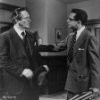

The seeds that Willy intends to buy and plant are also symbolic. Furthermore, Ben, Biff and Happy constantly insists that the Lomans better fit into the physical and hard kinds of work, claims backed by their failure as salespersons. In fact, even though Willy himself refers New York City as a land of opportunity and success, his admiration of his brother’s ventures and expeditions in distant lands shows that he is not convinced of his claims (Shmoop 66). For example, Willy Loman’s obsession with faraway lands shows that he prefers a very different livelihood than the one he has now. On the other hand, distant places signify the possibility of something better, freedom and escape (Shmoop 66). The author contrasts the largely narrow setting of the play with the hugeness of Africa, Alaska, and American West. According to Shmoop, Lomans’ landscape where the play seems restricted is narrow symbolizing both mental and physical limitations of the characters (66).

First, Lomans’ home where the play takes place is symbolic. Death of a Salesman has a good share of symbols, which the playwright uses to communicate the themes of his great work creatively. Use of symbolism is common in virtually all forms of literary works. Although many literary devices are evident in the play, this paper narrows down to the use of symbolism, as brought forth in the play.

Its subject centers on the diminishing days of a failing sales clerk. Literary scholars use various literary devices such as literary motifs, an identifiable rule of thumb, allegory, imagery, symbols, a structure or a convention amongst others in order to bring out themes of their writings vividly (Shmoop 66).Īrthur Miller’s 1949 play titled “Death of a Salesman” qualifies as a fascinating must-read masterpiece and a perfect reflection of the late 1940’s life circumstances of the main protagonist Willy Loman and his family (Shmoop 3). Literary works including novels, short stories, narratives, plays and poems provide the reader with lenses through which he/she can see and understand deeply various cultural, social and political aspects of the society, which seem critical to his/her individual and collective well-being.


 0 kommentar(er)
0 kommentar(er)
